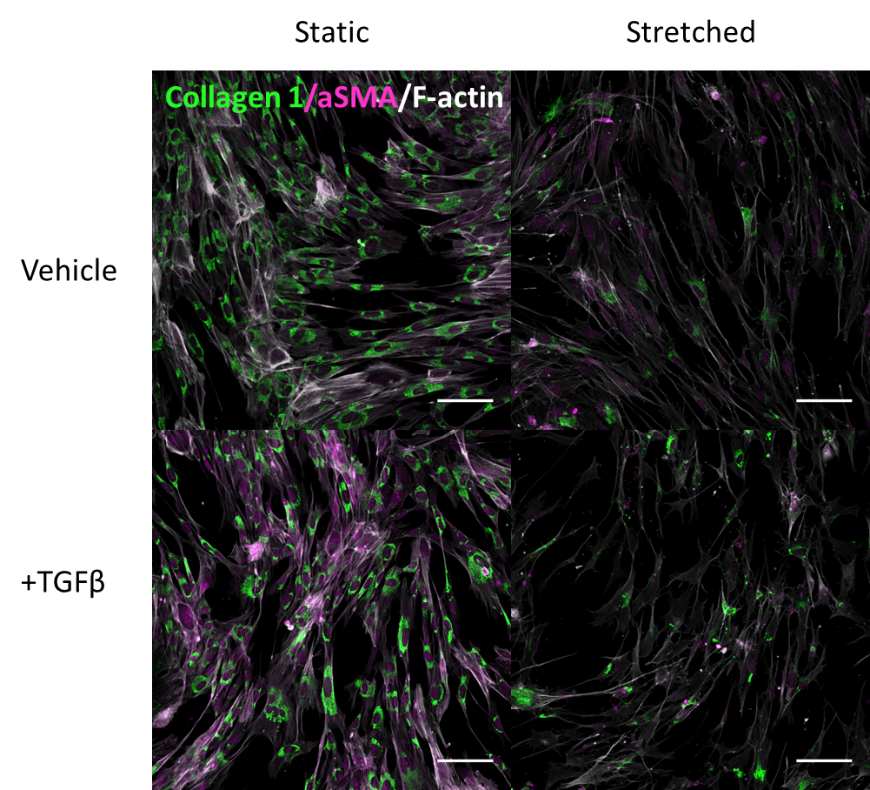Abstract
Introduction:
Pulmonary arterial hypertension is a rare, fatal disease with vascular remodeling leading to increased right ventricular pressure followed by right ventricular fibrosis. Here, the objective was to study cardiac fibrosis as a result of mechanical stress. Cardiac fibroblasts (cFBs) were generated using induced pluripotent stem cells (iPSC) and exposed to a mechanical stimulus.
Methods:
Confluent iPSC were differentiated using 12 µM CHIR99021 for 24 h to RPMI with B27 without insulin. Next, cells recovered for 24 h, followed by stimulation with 75 ng/ml fibroblast growth factor 2 up to day 20. Finally, the differentiated cells were exposed to 10 ng/ml transforming growth factor ? (TGF?) and 10% cyclic stretch at 1 Hz for 3 days using the Flexcell FX-6000 system.
Results:
The differentiated cells had a fibroblast-like morphology. Furthermore, the presence of cardiac (GATA4, TCF21) and fibroblast (VIM, PDGFR?) markers at gene and protein levels confirmed the cFB identity.
TGF? stimulation resulted in increased levels of ?-smooth muscle actin (?-SMA), a marker of fibroblast activation. Mechanical stretching reduced both ?-SMA and collagen 1. Furthermore, stretching was able to protect the cells from TGF? stimulation. This was associated with decreased expression of PAI1, a marker of TGF? signaling.

Conclusion:
Cyclic mechanical stimulation reduces cFB activation and can protect against TGF? stimulation.